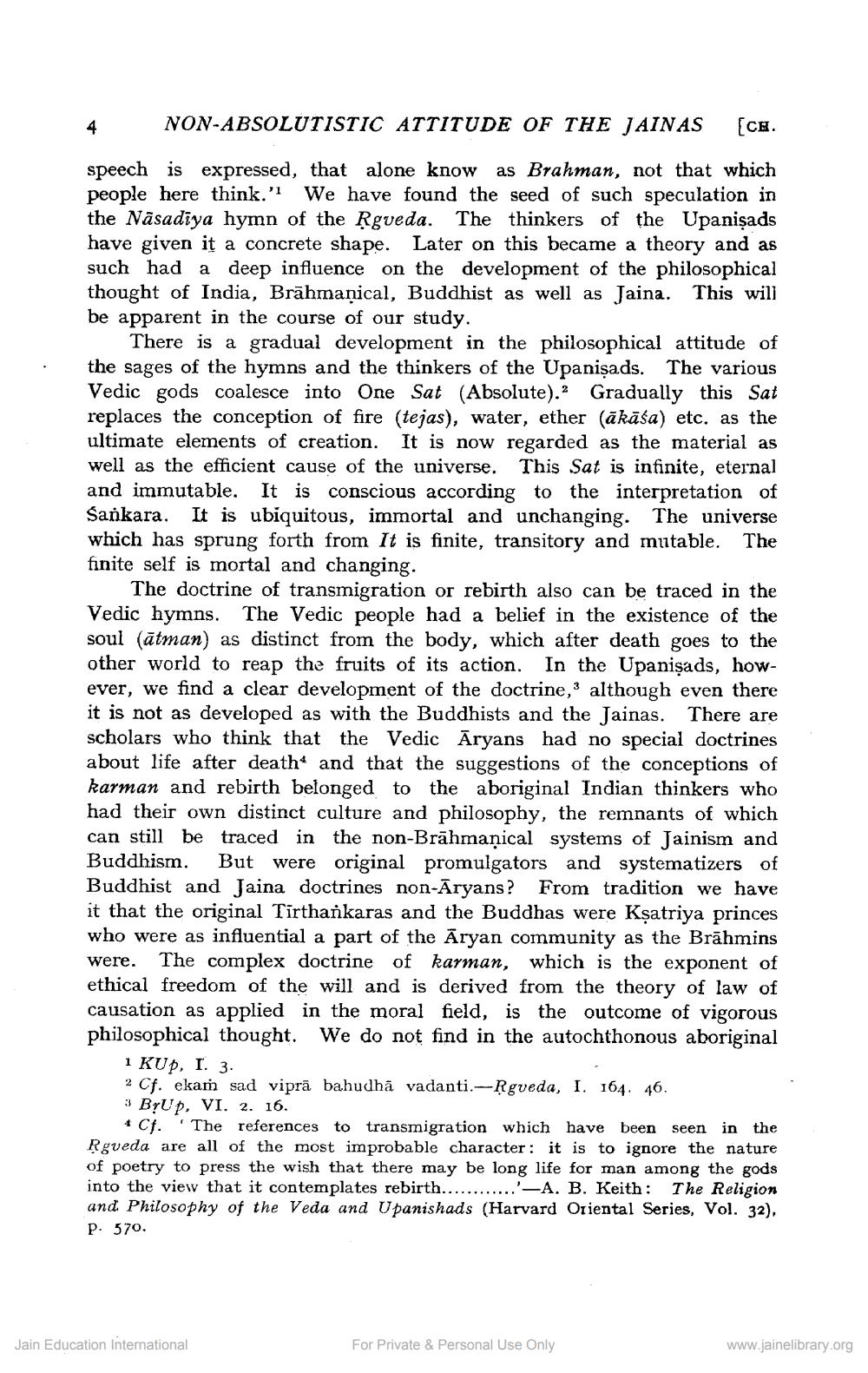________________
NON-ABSOLUTISTIC ATTITUDE OF THE JAINAS
[CH.
speech is expressed, that alone know as Brahman, not that which people here think." We have found the seed of such speculation in the Nasadiya hymn of the Rgveda. The thinkers of the Upanisads have given it a concrete shape. Later on this became a theory and as such had a deep influence on the development of the philosophical thought of India, Brāhmaṇical, Buddhist as well as Jaina. This will be apparent in the course of our study.
There is a gradual development in the philosophical attitude of the sages of the hymns and the thinkers of the Upanisads. The various Vedic gods coalesce into One Sat (Absolute)." Gradually this Sat replaces the conception of fire (tejas), water, ether (ākāśa) etc. as the ultimate elements of creation. It is now regarded as the material as well as the efficient cause of the universe. This Sat is infinite, eternal and immutable. It is conscious according to the interpretation of Sankara. It is ubiquitous, immortal and unchanging. The universe which has sprung forth from It is finite, transitory and mutable. The finite self is mortal and changing.
The doctrine of transmigration or rebirth also can be traced in the Vedic hymns. The Vedic people had a belief in the existence of the soul (ātman) as distinct from the body, which after death goes to the other world to reap the fruits of its action. In the Upanisads, however, we find a clear development of the doctrine, although even there it is not as developed as with the Buddhists and the Jainas. There are scholars who think that the Vedic Aryans had no special doctrines about life after death and that the suggestions of the conceptions of karman and rebirth belonged to the aboriginal Indian thinkers who had their own distinct culture and philosophy, the remnants of which can still be traced in the non-Brāhmaṇical systems of Jainism and Buddhism. But were original promulgators and systematizers of Buddhist and Jaina doctrines non-Aryans? From tradition we have it that the original Tirthankaras and the Buddhas were Kṣatriya princes who were as influential a part of the Aryan community as the Brahmins were. The complex doctrine of karman, which is the exponent of ethical freedom of the will and is derived from the theory of law of causation as applied in the moral field, is the outcome of vigorous philosophical thought. We do not find in the autochthonous aboriginal
4
1 KUp, I. 3.
2 Cf. ekam sad viprā bahudha vadanti.-Rgveda, I. 164. 46.
3 BrUp, VI. 2. 16.
4 Cf. 'The references to transmigration which have been seen in the Rgveda are all of the most improbable character: it is to ignore the nature of poetry to press the wish that there may be long life for man among the gods into the view that it contemplates rebirth...... .-A. B. Keith: The Religion and Philosophy of the Veda and Upanishads (Harvard Oriental Series, Vol. 32),
P. 570.
Jain Education International
For Private & Personal Use Only
www.jainelibrary.org




